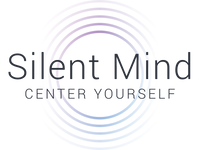Meditation and mindfulness practices enhance focus and provide peaceful respite as we pursue careers, excel in school, or manage busy families. But it might also have positive impacts on the challenges faced by more vulnerable populations.
Let’s look at some research that indicates meditation may be of benefit to children and aging adults.
Meditation for Children Dealing with Trauma
Research finds that children prone to worry, depression, and lack of focus could benefit from simple meditative practices.
The researchers explained how they conducted the study:
“In our study, we compared a simple form of distraction – counting backward from 10 – with two relatively simple forms of meditation: focused attention to the breath and mindful acceptance. Children in an MRI scanner had to use these techniques while watching distress-inducing video clips, such as a child receiving an injection.”
The research is intended to help demonstrate that mindfulness and meditation can become suitable interventions for children managing chronic illness, as well as their siblings. It is also relevant for students navigating the ongoing challenges left in the wake of the pandemic.
Read more: Meditation reduces brain activity in the default mode network in children with active cancer and survivors, August 2022.
Meditation May Slow Cognitive Decline in Older Adults
Older adults may be better at overall acceptance and stress management, but it’s difficult to retain speed and accuracy in reasoning as we age.
Over the past few decades, much research has indicated that mindfulness and meditation may increase cognitive capabilities in older adults.
But more than that, studies seem to suggest it can be both prevention and treatment. One study finds that healthy older adults can improve cognition with mindfulness by strengthening connectivity in the brain that naturally degrades with age.
Furthermore, encouraging studies have found that older adults already in the early stages of memory disorders can benefit from meditation. With just eight weeks of daily 12-minute practice, participants enjoyed marked improvements in mood and anxiety.
Start Healing Today
More research is needed to strengthen the link between meditation and healing in vulnerable populations, but so far, the findings are encouraging.
What is clear is that there are no drawbacks to adding mindfulness and meditation to a routine. Whether it be short mindfulness practices, classic silent meditations, or sound healing sessions, all it takes is a short, daily commitment to a healthier future.
What do you think of this research? How has your mindfulness practice helped you? Let us know in the comments.
Need help on your next singing bowl purchase.
Take our Interactive Singing Bowl Selector and find the PERFECT bowl for you!







Leave a comment